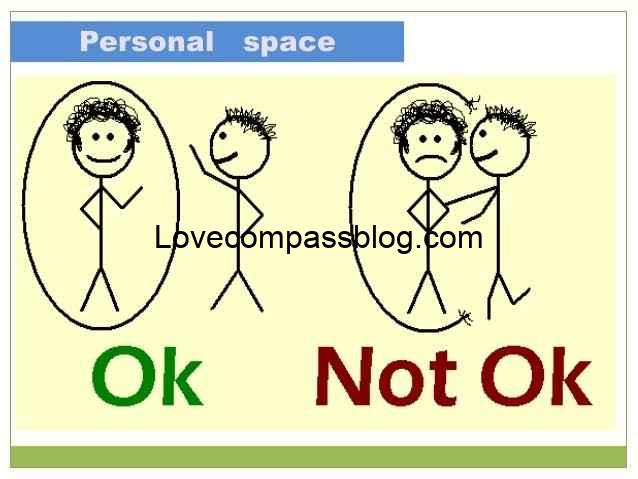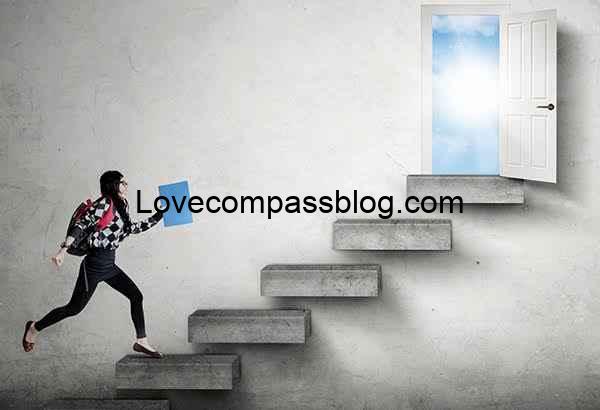The Importance of Personal Space in a Relationship

Individual space, what does it mean in the context of a relationship? The concept of personal space is often misunderstood in relationships, with many believing that a request for space signals a problem or growing distance. However, personal space is a fundamental element of maintaining a healthy partnership. It allows individuals to recharge, reflect, and nurture their identity. In truth, this space—whether physical, emotional, or communicative—helps couples preserve the bond while preventing feelings of suffocation and resentment. Establishing and respecting personal space enables partners to feel secure and balanced in the relationship, fostering long-term success.
Personal Space and Boundaries in Relationships

Personal space in relationships encompasses more than just physical distance. It’s about setting and respecting boundaries that safeguard each partner’s sense of self and emotional well-being. When relationship boundaries are established, each person knows where they stand and what is needed for mutual comfort.
The Role of Space in Partnerships and Romantic Relationships
In any relationship, personal boundaries serve as a framework for maintaining independence. When couples are too close, emotionally or physically, it can lead to burnout or even a loss of identity. Space, on the other hand, offers opportunities for personal growth while reinforcing mutual trust. These boundaries must be understood and accepted by both partners to avoid miscommunication or resentment. A healthy level of distance prevents feelings of control or suffocation and allows the relationship to flourish. This space is vital in both romantic partnerships and other close relationships, including friendships and family bonds.
Types of Personal Space in Relationships
Personal space comes in various forms, each serving a unique purpose in maintaining the relationship’s balance:
- Physical Space: Having separate hobbies, solo activities, or even a room to oneself can help recharge and avoid over-dependence. For example, while one partner may enjoy time outdoors hiking, the other might prefer reading or spending time with friends. This separation allows for individuality without neglecting the relationship.
- Emotional Space: Everyone needs emotional downtime to process feelings, reflect on situations, and manage their internal world. Emotional space means giving your partner the room to reflect without pressing for answers or conversations. It is particularly important during challenging times when someone may need to step back to cope with their emotions before sharing them.
- Communication Boundaries: These are often overlooked but crucial. Sometimes, taking a break from discussions—especially heated ones—allows both parties to reflect and approach conversations with a calmer mindset. Knowing when to step back from constant communication helps avoid unnecessary conflicts and misunderstandings.
These different forms of personal space work together to foster a healthier and more sustainable relationship, allowing both partners to grow individually and as a couple.
Why Is Personal Space Essential for a Healthy Relationship?

Personal space provides emotional and psychological breathing room in a relationship. Without this space, partners risk losing themselves or becoming overly dependent on each other. Independence and autonomy are not only important for individual well-being, but also for the health of the relationship.
Healthy Relationship Distance and Independence
At the heart of any successful relationship is the balance between closeness and independence. When couples have space, they develop a healthier attachment that avoids the pitfalls of codependency. Codependency often results in one partner becoming excessively reliant on the other for emotional fulfillment, which can suffocate the relationship and lead to feelings of resentment. On the other hand, when each partner retains their individuality and emotional independence, they can give more to the relationship. They are more fulfilled, confident, and capable of nurturing the partnership from a place of strength rather than need.
Personal space helps partners rediscover their identities. They remember what makes them happy, what excites them, and what they need to feel fulfilled beyond the relationship. This autonomy enriches the partnership because both people bring their full selves to the table rather than leaning entirely on each other for happiness.
Space and Trust in Long-Term Partnerships
In long-term relationships, trust and personal space are deeply intertwined. Space allows for the building of trust, as both partners learn to feel secure even when they are not constantly together. Trust is not only about being faithful in a physical sense; it’s about having confidence that your partner can thrive independently and still remain committed. When you trust your partner’s independence, you are less likely to feel insecure about time apart, leading to a stronger bond.
Space also nurtures the ability to rely on oneself emotionally. By having personal space, partners cultivate a healthy form of self-reliance, which reduces the pressure on the relationship to fulfill every emotional need.
Space and Relationship Improvement
In many cases, giving each other space can even improve a relationship. When couples spend time apart, they have time to reflect on the relationship, themselves, and any issues they may be facing. It offers a chance to step back and gain perspective, preventing minor disagreements from becoming overwhelming. By maintaining space, partners often find themselves better equipped to communicate openly, resolve conflicts, and appreciate each other’s presence.
Time apart also allows partners to experience new things separately, bringing fresh perspectives and experiences back into the relationship. This continuous renewal of interests and perspectives keeps the relationship dynamic and exciting, reducing the risk of stagnation.
Practical Steps to Establish Healthy Personal Space

Establishing personal space isn’t something that happens naturally for all couples. It often requires careful communication, mutual respect, and a clear understanding of each partner’s needs.
Setting and Respecting Boundaries
The key to maintaining personal space lies in setting and respecting boundaries. Partners should clearly express their needs for space—whether it’s time alone, time with friends, or emotional breathing room—and those needs should be honored. Respecting these boundaries is crucial. When a partner asks for space, it should be given without questioning or suspicion. This ensures that both partners feel safe in their independence, reducing tension and frustration.
It’s important to remember that personal space should be given freely, not only when asked for. This means trusting that your partner will come back to you, and not pressuring them to explain their reasons. Sometimes, all that is needed is time to recharge.
Avoiding Codependency and Promoting Individual Growth
To avoid the pitfalls of codependency, partners should encourage each other to pursue independent interests and maintain social connections outside the relationship. Whether it’s having separate hobbies or spending time with other loved ones, these activities help each person grow individually, which in turn benefits the relationship. When couples avoid controlling behavior and support each other’s personal growth, they create a more balanced and fulfilling dynamic.
Partners should also take steps to honor requests for space by acknowledging when someone needs time alone, without taking it personally. These requests are not a reflection of dissatisfaction in the relationship but rather an essential part of maintaining one’s emotional health.
Overcoming Challenges in Maintaining Personal Space

While personal space is necessary, it can sometimes bring up emotional challenges, particularly when one partner needs more space than the other.
When Your Partner Needs Space and How to Handle It
When a partner asks for space, it’s easy to feel insecure or worry about the relationship. However, the best way to handle it is by respecting their needs without pressing for an explanation. Asking for too many details can make them feel cornered or pressured, leading to unnecessary friction. Instead, allow them the time they need and trust that they will return when they’re ready.
Understanding that personal space is about recharging and reflection—rather than a sign of disconnection—can help alleviate these insecurities.
Managing Emotions During Time Apart
It’s natural to feel anxious when your partner needs space. During these times, it’s important to focus on your own emotional well-being. Rather than fixating on the separation, use this time to reconnect with yourself, whether by engaging in hobbies, spending time with friends, or reflecting on your personal goals. Processing your feelings privately, without relying solely on your partner, will not only strengthen your emotional health but also improve the quality of your relationship.
How Personal Space Strengthens Relationships

Personal space is crucial to maintaining the emotional and psychological well-being of both partners in a relationship. This balance allows couples to grow together while still preserving their individuality.
Improves a Relationship Over Time
By giving each other space, couples foster a more mature, balanced partnership. Personal space prevents over-dependence and burnout while keeping the relationship fresh and dynamic. Partners who respect each other’s need for space often find that they have more to give when they come back together, strengthening the bond in the long run.
Maintaining this healthy distance allows for moments of personal reflection, which ultimately contributes to better communication and conflict resolution. When both partners have the emotional clarity that comes from time alone, they are better equipped to handle challenges without becoming overwhelmed.
Can Space Apart Fix a Relationship?
In some cases, space can help fix a relationship that’s struggling. When couples spend time apart, they have the opportunity to reevaluate what they want from the relationship and reflect on any issues without the pressure of immediate resolution. This space allows for a clearer perspective, reducing the likelihood of reactive emotions and poor decision-making. By stepping back, partners can identify areas for improvement and come back together with renewed energy and focus.
Quotes and Real-Life Examples of Personal Space in Relationships

Personal space has been a long-standing principle in successful relationships. Many couples have found that allowing each other room to grow strengthens their connection rather than weakens it.
Personal Space in Relationships Quotes
A well-known quote sums it up perfectly: “The best relationships are those where each partner creates space for the other to grow without the fear of losing them.” This highlights the idea that true love flourishes when partners allow each other the freedom to evolve.
Examples of Personal Space in Relationships
In many cases, personal space can manifest in simple ways, such as taking solo weekend trips, engaging in hobbies independently, or simply having time to reflect alone after a long day. For instance, a married couple might spend their evenings in separate rooms—one reading a book while the other enjoys a movie—before coming together to talk about their day. These small acts of independence within the relationship help maintain the bond by giving both partners time to recharge, ensuring they are emotionally available when they come back together.
Another example could involve partners maintaining friendships outside the relationship. Perhaps one partner enjoys meeting friends for weekly coffee, while the other dedicates time to a hobby or sport. These moments apart give both partners time to pursue their individual interests, preventing the relationship from becoming the only source of happiness.
Even in times of conflict, creating emotional space allows both partners to calm down and reflect before addressing issues, rather than reacting impulsively in the heat of the moment. For example, if an argument occurs, taking a brief break to process thoughts independently often leads to more productive conversations when both partners are ready to communicate with clearer perspectives.
Conclusion
Personal space is not just a luxury in relationships—it is a necessity for emotional health, independence, and the overall success of the partnership. By creating space for individual growth and reflection, partners can nurture their relationship while preventing burnout, overdependence, and feelings of suffocation. Setting and respecting boundaries helps avoid misunderstandings and creates a strong foundation built on trust and mutual respect.
Now that you know the importance of personal space in relationships, start by discussing boundaries openly with your partner. Encourage each other to maintain individual hobbies, spend time with loved ones, and honor requests for alone time when needed. Over time, you’ll find that this healthy distance will not only improve your connection but also allow your relationship to thrive, with both partners feeling fulfilled and supported.




